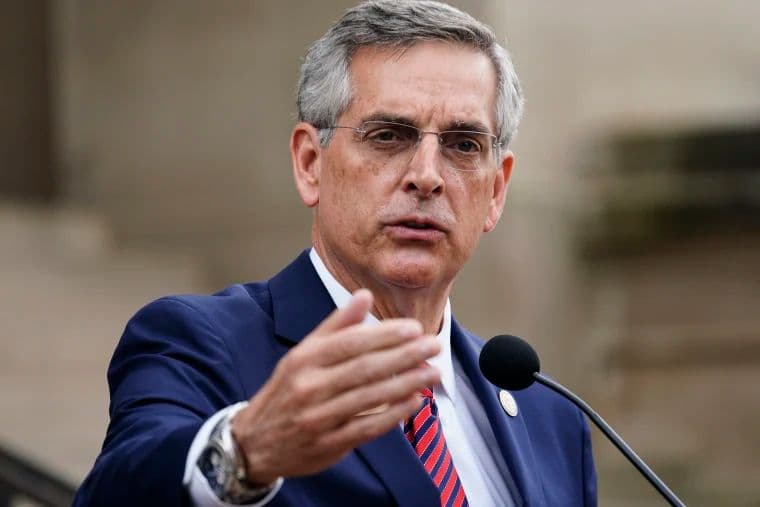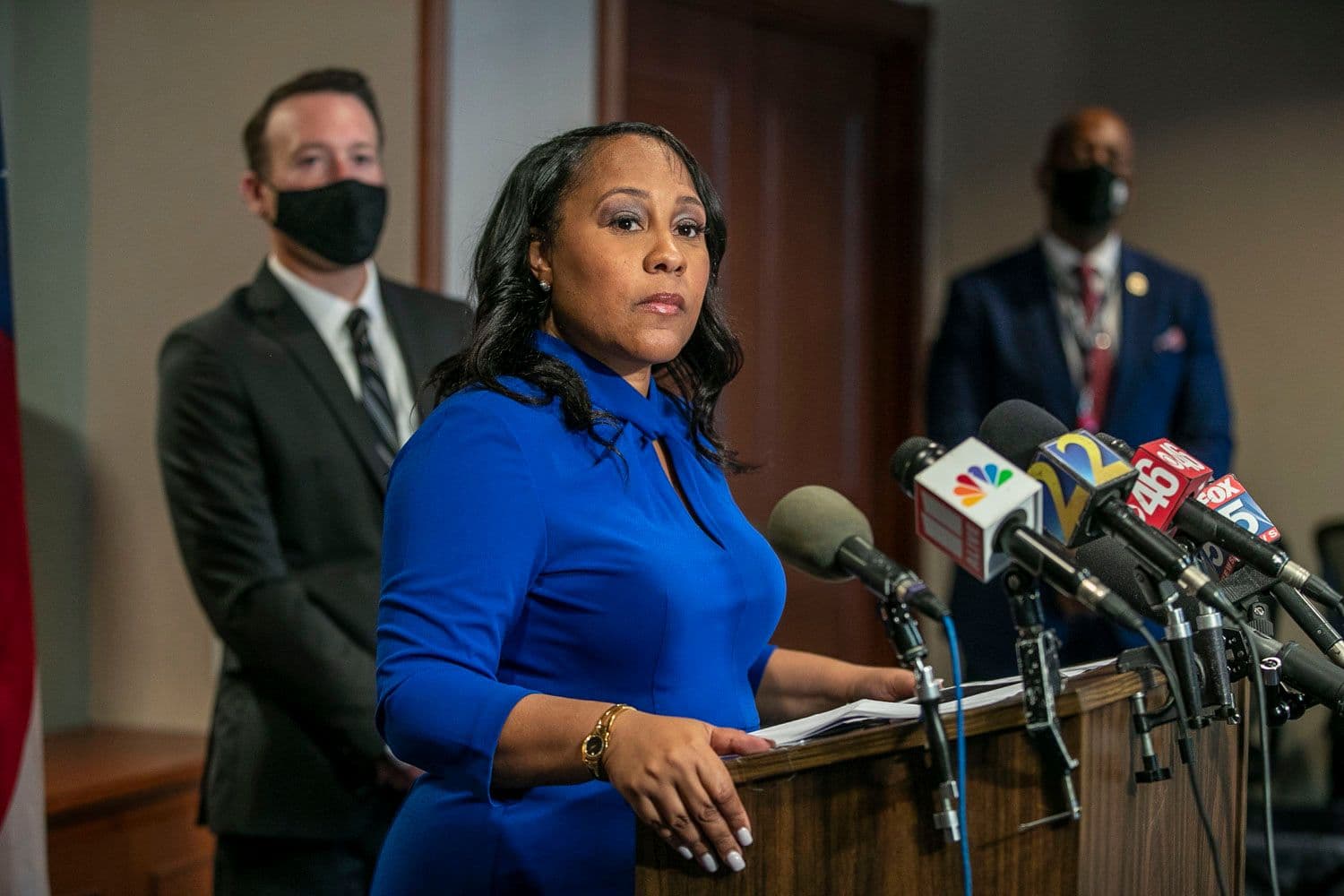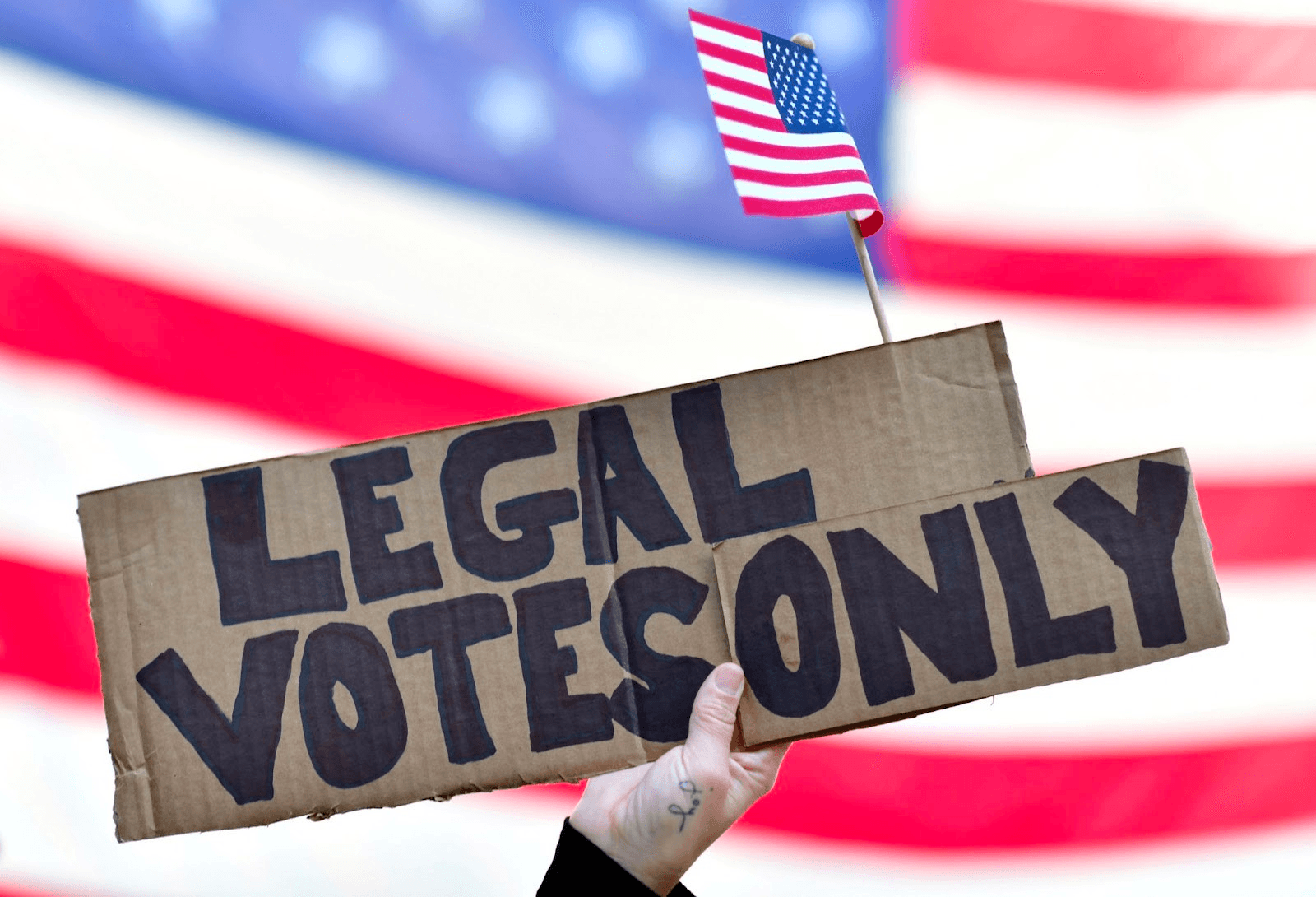2020 Recap
What is Voter Fraud? The issues of voter and election fraud circulate throughout the country during election cycles. Voter fraud can take many forms: providing false information when registering to vote, voting when ineligible, voting more than once, using someone else’s name to vote, or registering and voting in multiple locations for the same election. Election boards or campaign officials can also commit fraud. Often, these focus on altering a ballot, paying a voter in exchange for a specific vote, or engaging in voter suppression.
The Claim. According to the Census Bureau, 69% of voters cast their ballots by mail or early voting, the highest rate since the Bureau began measuring the statistic. In the aftermath of the elections, former President Trump alleged that these relaxed election laws made voting more susceptible to widespread fraud. Many Republican state legislatures have enacted voting legislation in response to these allegations, asserting that these measures are necessary to ensure fair and secure elections. Democrats, however, decry the laws as restrictive and argue they are born out of the “Big Lie” that President Biden stole the 2020 election.

NBC News
Legal Action. Following the election results, former President Trump and other Republicans filed lawsuits across many battleground states, alleging widespread fraud. As courts dismissed many of those challenges, Trump and his allies continued to pressure state officials into overturning what he thought were false votes. Georgia was at the forefront of this mission, as the former President urged Georgia Secretary of State Brad Raffensperger (R) to “find” 11,780 votes — enough to give him the margin of victory in the state. Senator Lindsey Graham (R-SC) is reportedly one of several Republicans who also pressed Raffensperger and Georgia legislators to alter election procedures in ways that would change the final vote results. The Senator has dismissed accusations he acted improperly as “ridiculous” and rejects the characterization that he was working to undo Georgia’s election results, insisting he was trying to learn more about the state’s signature verification process for ballots.
Graham’s Delay
Graham Must Testify. On Tuesday, the Supreme Court rejected an emergency request from Graham to temporarily block a subpoena for his testimony as part of an investigation into his post-election activities. Graham argued that the Constitution — specifically the Speech or Debate Clause — shielded him from such inquiries as a sitting Senator. He claimed that his post-election efforts amounted to legislative activity, which the Clause protects. Prosecutors argued that granting Graham’s request would significantly disrupt the probe. In an unsigned order with no noted dissents, the justices ruled that lower courts addressed these protections broadly and said that Graham could still challenge specific questions under the Clause later.
Path to SCOTUS. The Fulton County District Attorney first sought to compel the Senator’s testimony in July, and he has fought the subpoena since then. In August, U.S. District Judge Leigh Martin May limited the probe to allow prosecutors to question Graham in three areas: coordination with the Trump campaign, his public statements about the 2020 election, and any of his efforts to persuade Georgia officials to take specific actions. Graham appealed that ruling, and a three-judge panel on the Court of Appeals for the 11th Circuit unanimously held that a narrowed scope of questioning would not infringe on Graham’s special privileges as a sitting Senator. Graham then asked the Supreme Court to block the subpoena. Following Graham’s emergency request, Justice Thomas — who oversees such filings from the 11th Circuit — granted an “administrative stay,” temporarily blocking the testimony while the Court considered the challenge.

PBS NewsHour
Thomas’ Conflict? Some congressional Democrats attacked Thomas for granting the stay, saying he had a conflict of interest in the case because his wife — conservative activist Ginni Thomas — had worked to overturn election results in key swing states. Congresswoman Jan Schakowsky (D-IL) tweeted: “Add this to the laundry list of impeachable offenses he has committed.” However, legal analysts said the move was fairly common practice at the Supreme Court, ensuring there were no other court actions while the justices weighed the challenge.
Investigation
Fulton County Probe. Fulton County District Attorney Fani Willis is investigating possible election interference by former President Donald Trump, centering on his call with Raffensperger and his efforts to get an alternate slate of electors to vote at the Electoral College. Earlier this year, Willis impaneled a special grand jury to begin her probe. While the jury cannot indict people, it can make referrals for criminal prosecution. Reportedly, several Trump allies have already testified before the grand jury, including former White House counsel Pat Cipollone and former Senator Kelly Loeffler (R-GA). Others have sought to avoid the probe, including Congressman Jody Hice (R-GA) and former White House Chief of Staff Mark Meadows.

Atlanta-Journal Constitution
Graham has accused prosecutors of weaponizing the law in the probe, saying: “We will go as far as we need to go and do whatever needs to be done to make sure that people like me can do their jobs without fear of some county prosecutor coming after you.” Barring other court actions, the Senator will testify before the Atlanta grand jury on November 17.









